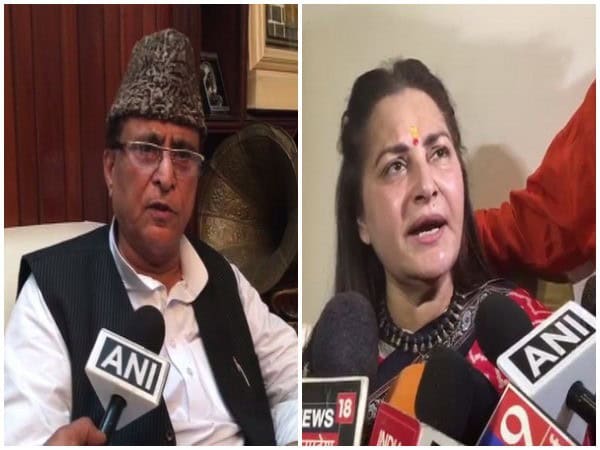New Delhi: When they find it difficult to outwit powerful women fair and square, they often resort to using offensive language in a vain attempt at trying to put them down. That is the current dichotomy of electioneering in India, where personal and insensitive remarks on women have become a part of political debates.
“I brought her (Jaya Prada) to Rampur. You are a witness that I did not allow anyone to touch her body. It took you 17 years to identify her real face but I got to know in 17 days that she wears khaki underwear,” said Azam Khan at a rally in Rampur, on Sunday, and instantly got criticised for his insensitive remarks against film actress and Rampur BJP candidate Jaya Prada.
Responding to his remark, Jaya snapped back saying Khan should not be allowed to contest the elections. She also added that his “vulgar remarks” will not deter her from contesting polls from Rampur.
In an unsuccessful attempt for damage control, earlier today, while speaking to ANI, Khan said he did not name anyone and would withdraw his candidature from the ongoing polls if proved guilty.
However, it has been witnessed time and again that India is inhabited by politicians who are allowed to actively participate in Indian politics, while they carry on spewing such remarks against women around them.
As the debate around Khan’s remarks has caught the nations attention, an important question arises, what relevance does a female leader’s appearance, clothes or background hold when it comes to serious political discussions and debates?
This is not the first such incident where a male politician, unable to conceptualise a sensible argument against his female opposition party leader, has hit them with personal and insensitive remarks.
Earlier this month, while addressing a rally in Meerut, BJP’s Jayakaran Gupta referred to Congress party’s General Secretary for UP East, Priyanka Gandhi as “Skirt waali bai”.
“Skirt waali bai (the woman who once wore skirts) has started wearing sari and visiting temples, those who hate ganga jal are now visiting the Ganga,” he said.
In March, BJP’s Mahesh Sharma had referred to Congress president Rahul Gandhi as “Pappu” and called Priyanka as “Pappu ki Pappi”.
A BJP Legislature, in January, called Priyanka “Surpanakha,” the demons from Hindu epic Ramayana.
BJP leader Smriti Irani too has faced her share of sexist remarks.
Sanjay Nirumpam, former President of the Mumbai Regional Congress Committee, had once, during a TV debate, said to Irani, “Aap to TV pe thumke lagati thi, aaj chunavi visleshak ban gayi!” (You once danced for TV, and now you have become a psephologist?).
Interestingly, it’s not just men who are making these remarks. Earlier this year, Bharatiya Janata Party (BJP) MLA Sadhana Singh stirred a hornet’s nest by alleging that Bahujan Samaj Party (BSP) supremo Mayawati sold her dignity in exchange for power.
Singh also claimed that Mayawati is a shame on the entire womankind.
Women constitute about 11.6% of the 542-member Lok Sabha and 11% of the 245-member Rajya Sabha. While they have time and again proven their worth in Indian politics, there is still a need to accept them as headstrong leaders with an identity which goes beyond their appearance, clothes and background.
[source_without_link]ANI[/source_without_link]

